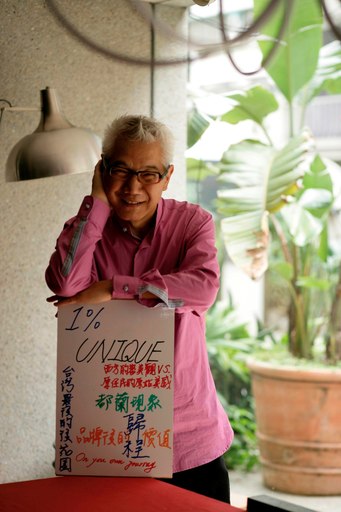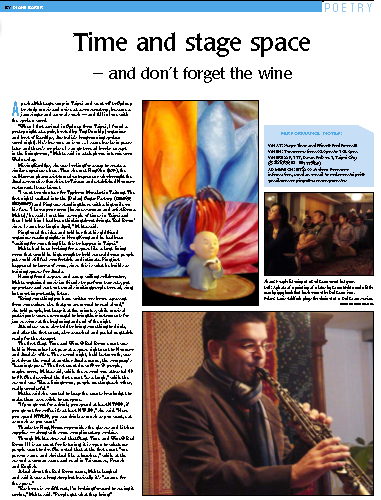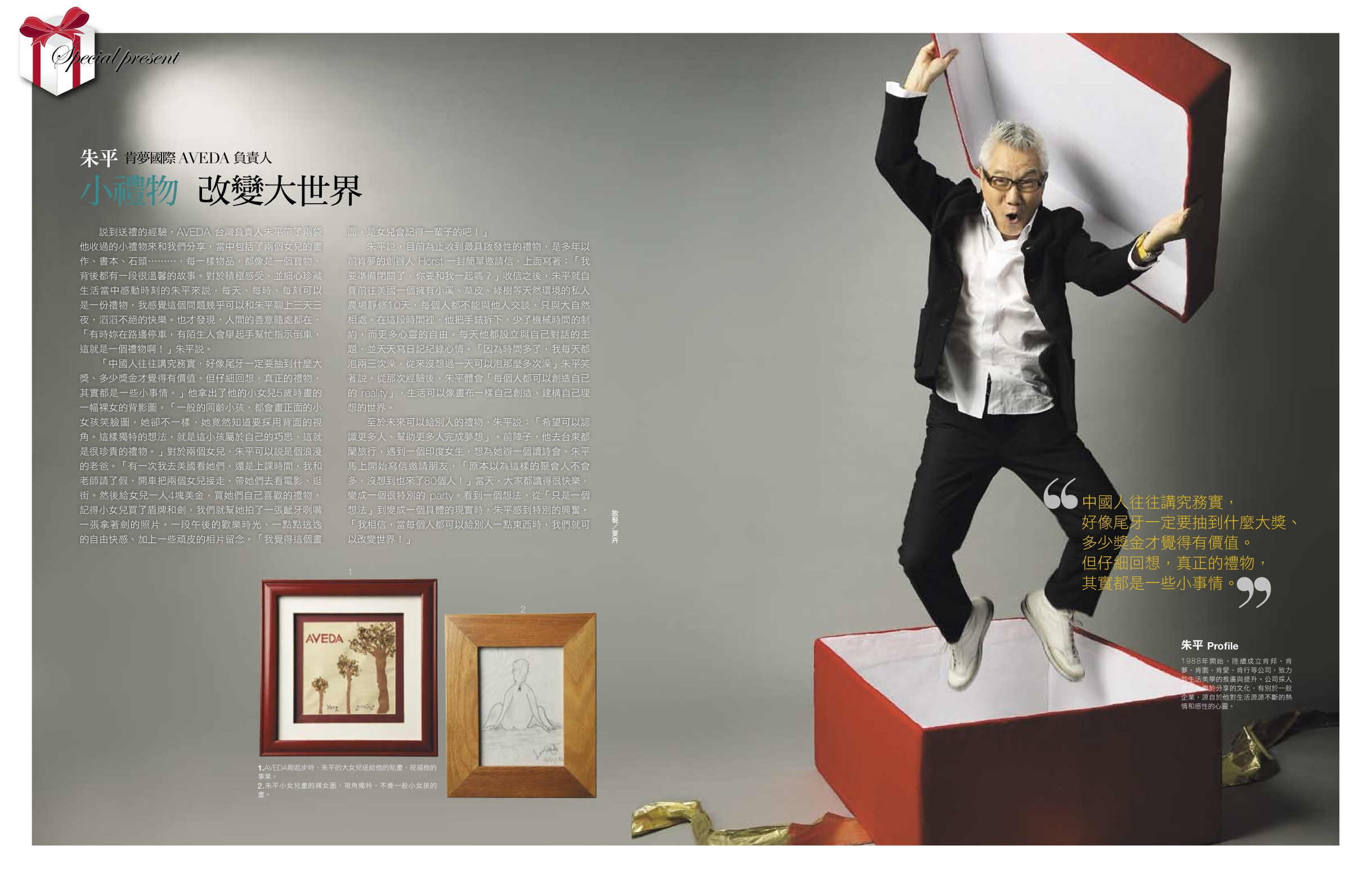Pictures from Stage Time & Wine 005 2010/3/20
[nggallery id=12]
This article is written by Diane Baker, a journalist and a long-time resident of Taipei, for Centered on Taipei (April 2010, Volume 10, Issue 7)
The color red can be polarizing. In traditional Chinese culture it is the color of happiness, of celebration: ‘lucky’ red envelopes, red wedding outfits, the red of firecrackers. It is also the color of politics – everything from Mao Zedong’s ‘Little Red Book’ and ‘the East is Red’ motto to the red-shirt clad protesters marching against former president Chen Shuibian here in Taipei.
The Red Room, however, is a space that conveys warmth, comfort and excitement; at least that’s what Ayesha Mehta hopes.
Taipei-raised Ayesha is the impetus behind Stage Time and Wine @ The Red Room, a series of informal evenings begun last November to allow people to share something that inspires them, from words to music to elaborate gestures of expressive intent; and most importantly, a space in which to practice deep listening. In a telephone interview, Ayesha explained that she had been looking for something to do, someplace to go, after moving back to Taipei in April 2009 following six years in Sydney, Australia. Ayesha was inspired by The Listening Book: Discovering Your Own Music by W.A. Mathieu, a poetry night she had experienced in Australia at “Bardflys,” (spoken-word evenings at pubs, organized by Tug Dumbly, a performance poet) and the living room of 154 Devonshire Street, one of her homes in Sydney. Anybody (and nearly everybody did!) found their way to 154 with open hearts and open minds, listened to each other, shared, performed, created, read aloud.
Finding these kinds of events, these kinds of spaces was a struggle in any city in the world, let alone Taipei, she said.
In keeping with what must be the Mehta family motto –“if you can’t find it, create it” – Ayesha decided that if she wanted to share aloud in Taipei, she was going to have to organize the space for it. Finding the right space for such an event was crucial, and for six months appeared difficult.
Then she met Ping Chu, the entrepreneur behind the Aveda franchise in Taiwan and Taipei’s Nonzero Restaurant (he was profiled in the May 2009 edition of Centered on Taipei), when they were both volunteering in Taitung in the wake of Typhoon Morokot last August. They became fast friends and eventually Ayesha told Ping about her Red Room dream. He became an enthusiastic supporter and cheerleader, having attended some poetry reading nights years ago in Minneapolis, Minnesota and one in Hong Kong.
In an email interview, Ping Chu described the instant connection he felt with Ayesha. “I just felt that this special soul is my alter ego. Of course, I have always wanted to do a poetry reading party even though I am not a poet or good with words,” he wrote.
As fate would have it, Ping, through his company Canmeng Aveda, could offer just the kind of space Ayesha was looking for. Very quickly, the first Stage Time and Wine @ The Red Room was put together. Ayesha pulled together friends as volunteers, including help from mother Roma (editor of Centered on Taipei and co-owner of Sir Speedy, Tianmu) and brother Manav, sent out invitations by email and began designing the space with help from staff at Canmeng Aveda and Non-Zero restaurant. People who wanted to read or sing were told to bring something they had written or something they liked and wanted to share. A sign-up sheet and guestbook were set out at the door and everyone would have the chance to read at least once during the four-hour event. Musicians were encouraged to bring their instruments to perform and share at any point during the night.
Ayesha said that Stage Time and Wine @ The Red Room is open to whatever people want to do, but the key was that people have to come willing to listen – really listen.
“There’s a W. A. Mathieu quote from The Listening Book – my Bible of the moment – in which he explains this concept of deep listening as a key to engaging in creation, acknowledging hearing beyond the surface level,” she said.
Asked where the Red Room name came from, Mehta laughed and said it was a long story. “It’s just a name for the space,” she said, giving Manav credit for coming up with “Stage Time and Wine @ The Red Room.”
November’s Stage Time and Wine @ The Red Room, which drew about seventy people, was indeed a launch for the event, Ayesha said, mostly because no one really knew what to expect. But the succeeding evenings have had that living room ambience, of friends sitting together and sharing openly, without fear of judgement or imposed expectations of performance. New friendships are being formed and people are connecting through a space that affords them an opportunity to push themselves beyond their comfort zones.
“We’re not putting on a cap or expectation on the evening… just aiming for listening, sharing and trying to keep the space open,” she said, adding that they were trying to avoid a specific ‘vibe.’
Both Ayesha and Ping say they want the evenings to be accessible to everyone, whatever language[s] they speak. “We encourage reading poems in whatever language you choose. After all, it is for lovers of word and sound, not limited to nationality. It is a multi-language event. We had English, Chinese, Taiwanese, French, Italian poems read so far,” Ping wrote.
He also wants to get more young Taiwanese to attend, both to expose them to other cultures and to inspire them to improve their English. “My goal is to have at least thirty-percent of people attending this event to be locals. I started to invite my young friends to the event now. It’s a window for local youth to peek into a multinational community,” Ping wrote.
The idea was to keep the evenings low-budget – at NT$200, admission is less than one might spend for a couple of hours at a coffee shop or a drink or two at a bar. Asking participants to contribute a bottle of wine or other beverages to the open bar (and bring their own cup or glass) as well as a vegetable or something for the communal stewpot, ensures the limited budget would stretch no matter how many people show up.
As an entrepreneur, Ping feels that it is crucial for The Red Room be self-sustaining. “I am a businessmaker first. This is why I insist on a door fee for The Red Room. Sustainability requires an ecosystem. We are all in this ecosystem. I think The Red Room will evolve on her own term[s] over time. At this moment, it is a private underground party to celebrate intimacy and deep listening. I would like it to become a Mecca for all creative people to mingle and network. It is one of the reasons to create The Red Room. We can become each other’s Daymaker and Ripplemaker,” he wrote. Ayesha and Ping say they look forward to seeing The Red Room evolve organically. “Ayesha, Roma and Manav all agree that we should continue it as a grass[roots] movement that promotes intimacy and sharing. This is why we set up a committee for this event … It is our party, not Ayesha’s or mine. It is created by all lovers of sound and word. We are just a medium or a vehicle to serve,” Ping wrote, listing about a dozen volunteers whose help has been crucial in getting events going.
Ping said he felt blessed to have been involved with The Red Room, because it reflects both his personal and Canmeng Aveda’s corporate belief that people need to get involved in their societies to make the world a better place.
“I want to thank Ayesha to allow me to join her to co-found this dream,” he wrote. “I am honored to launch this movement that celebrates amateurism. To me, the future belongs to amateurism. All significant inventions are from the peripheral. The modern and active amateurs are the new phenomena in the 21st century. I think The Red Room is on the right track.”
“You create the night … what you need and what you want,” Ayesha said, adding, “Everyone who joins the night puts in, whether it be simply listening or watching others or sharing, exactly what they wish the night to be, filling an individual and communal purpose.
We are all joining to write our own Symphony of Place, a piece of our own, a quiet observance of sounds, intention and existence together.”
Stage Time & Wine @ The red room takes place on the 3rd Saturday of each month. For more information, contact red.room.taipei@gmail.com
Join us on the next event on April 17th. Mark your calenders!








